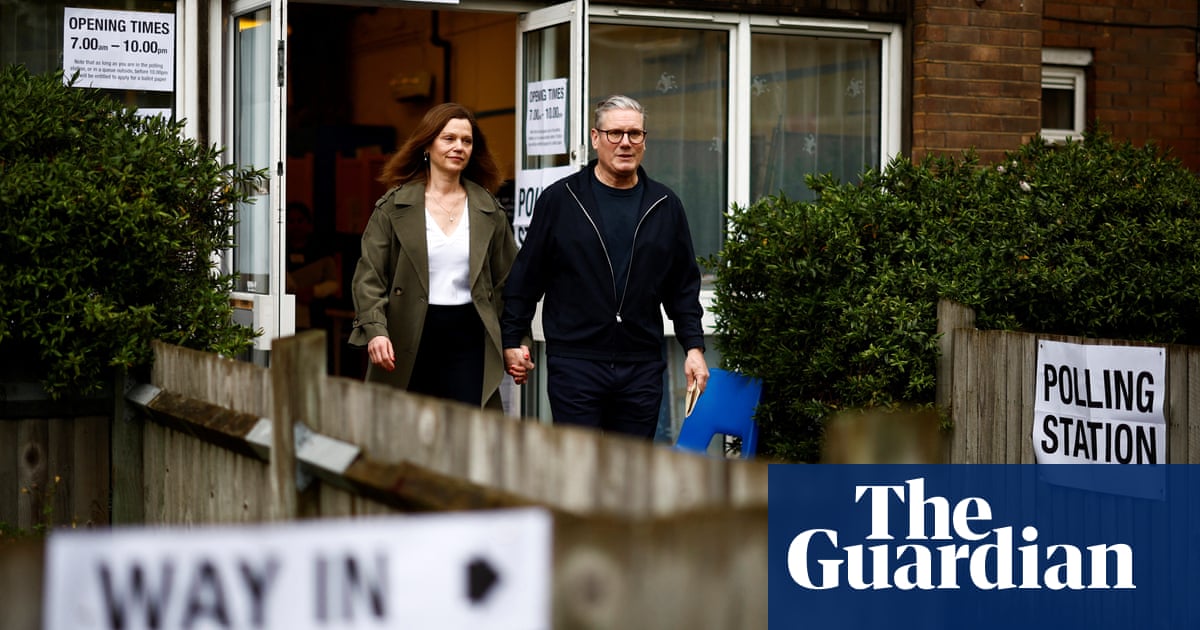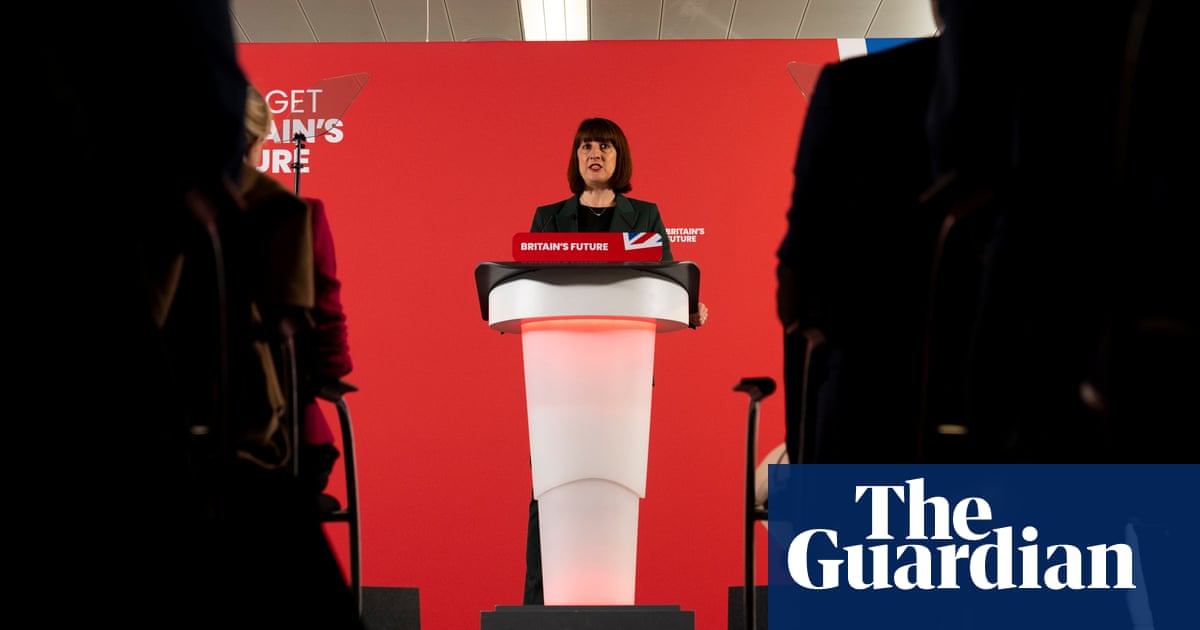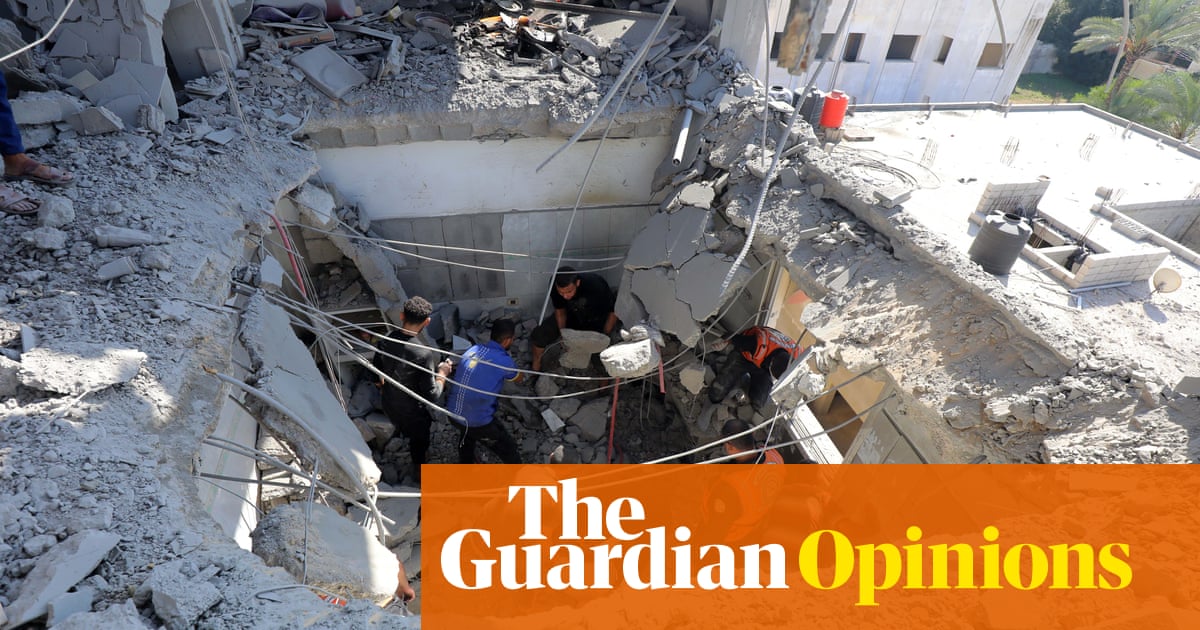
On a Wednesday afternoon, despite the pouring rain, Alum Rock Road is buzzing with activity. The busy thoroughfare in Birmingham is clogged with cars, and families flit in and out of shops that are selling bowls of fruit, colourful fabrics and sizzling kebabs.
Every few metres a Palestinian flag is pinned in a shop window or draped off a lamp-post.
The area has become a hub for pro-Palestine protests in the city, with hundreds of people attending a march and rally that takes place here every Saturday, and gathering to hear speeches at what has been called “Alum Rock speakers’ corner”.
“It is literally the only issue that will decide how I vote in the general election,” said one woman working in a dress shop on the road. She said she would vote for whichever candidate was “speaking out about this”.
“I used to watch the videos on social media every night but now I can’t, I get too upset and start crying,” she added.
Under new boundary changes, Alum Rock (an inner-city area that has a 93.6% black, Asian and minority ethnic population) will become part of Birmingham Ladywood, one of the most ethnically diverse constituencies in the UK and a melting pot of issues that could sway the vote here in July’s general election.
The seat has historically been one of Labour’s safest, with the shadow justice secretary, Shabana Mahmood, winning a majority of 28,582 in 2019. But the independent candidate Akhmed Yakoob is standing against her on a largely pro-Palestine platform and after receiving almost 70,000 votes – concentrated within inner-city Birmingham – in May’s West Midlands mayoral election. He thinks he could severely dent Labour’s chances of winning here.
Yakoob is capitalising on backlash over Labour’s stance on Gaza, and Mahmood’s abstention in a Commons vote calling for a ceasefire last year (she, and the party generally, have since said they do support a ceasefire in the Palestinian territory). But on Alum Rock Road, Gaza was not the only reason why voters said they were turning away from Labour.
“If I do vote, I won’t vote Labour. And that’s not because of Gaza, that’s because I don’t see them really changing anything,” said Ifthakhar Hussain, a 40-year-old pharmacist who used to back the party. “For me, you’ve got to look at home as well as abroad.
“People can’t access the healthcare system, and inequalities are growing because people can’t get simple medicines. People are coming in here and they’re shocked at the price of paracetamol, liquid for the children and stuff like that. So they’re just not buying it.”
He said Keir Starmer’s decision not to commit to abolishing the two-child benefit cap made him feel like Labour would do little to help places like Ladywood. It has the highest child poverty rate of any constituency in the UK, according to End Child Poverty. More than half the constituency’s children (54.6%) live in poverty, compared with the nationwide average of 30%.
“These sort of areas should be prime for levelling up, but we get nothing. And I can’t see Labour or the Conservatives doing anything to change that,” Hussain said.
Across the road, Mohammed Zubair, 53, runs an opticians and said he had not decided who to vote for in July. It would not be for the Conservatives, but Labour had not convinced him either.
“I’m not one of those who would vote purely on the Gaza issue, because our leaders represent us on much more than one topic. But I don’t know where to go, who to vote for. I genuinely don’t know who is the lesser evil of all these,” he said.
After seeing dozens of Gaza protests march past his shop in recent months, he predicted that many people would place their vote with Yakoob over the issue.
“Labour will definitely struggle. A lot of people will vote just for Gaza and that will affect Labour getting its majority,” he said. “The votes for Yakoob [in May] came from all the Asian areas, whether that was Aston, Lozells, Great Barr, Perry Barr, Alum Rock, Small Heath, Sparkhill – these are all predominantly Asian areas and all forgotten areas.”
Farther south in the constituency, Green Lane masjid and community centre said demand for its services, such as a food bank, counselling and youth groups had soared since Covid as poverty had risen in the area.
It was anger over this and the situation in Gaza that would dictate how people voted, said Sidrah Awan, the head of welfare at the mosque.
“I think at the moment everyone is more keyed up on politics and their local politicians, and whether they are representing them fully or not,” she said. “People want to know if politicians are going to be taking action to help the community and speak out internationally.”
From his headquarters at the top of Alum Rock Road, Yakoob is going full steam ahead with his campaign, analysing maps showing the layout of the constituency and where he needs to target voters.
Posters and billboards calling on people to “Lend their vote to Gaza” and vote for him are plastered around the area, but he says the key to his success will be his strong social media following – he has 195,000 followers on TikTok.
“Gone are the olden days where you had to go and see every voter and give them a leaflet. We don’t have that much time,” he said.
But questions have grown around some of his campaign tactics. He has recently apologised for triggering a hate campaign against a Labour canvasser after posting a video with false subtitles alleging she used a racist slur, when she had not.
He insists his campaign is not all about Gaza, and people are also supporting him because of his commitment to the local area – he has vowed to donate 100% of his MP salary to the local community if elected.
“Yes, Gaza is very dear to the residents of Ladywood but they are totally disgruntled and dissatisfied with the Labour council and the Labour MPs. Why is unemployment almost double in Birmingham compared to other cities around the world? Why are there a record number of food banks in Birmingham? And all this whilst our government is arming Israel.”
While Yakoob’s campaign is unambiguous in its targeting of majority Muslim areas, it is not only Muslim voters who said they had turned away from Labour over the party’s stance on Gaza.
“It’s just a question of basic decency at this point. I don’t know how people would think only Muslims would care about this,” said Dr John Munro, a Ladywood resident and history lecturer at the University of Birmingham. “I have many other things that I care about but at the moment nothing comes before Gaza, it’s just too horrifying. And that is the main reason I’m not voting Labour.”
He said the party’s earlier stance on the issue, as well as not calling for an end to arms sales to Israel, meant he would either not vote, or vote Green.
Local issues are also predicted to have an impact. There is huge anger over a planned regeneration scheme under which 2,000 homes in Ladywood – both council and privately owned – will be demolished to make way for higher-density housing.
While homeowners and council tenants, under the banner Ladywood Unite, are pushing back against the Labour-led city council’s plans, those living in council-owned buildings say they are struggling to get the repairs they need to live in the short-term.
Sephena Reece, 40, lives in a two-bedroom flat in a council-owned building with her four young children, aged between nine and 12 weeks. One of the bedrooms is damp, with a mouldy ceiling, and she has water leaking through a bathroom ceiling.
She said the council, which issued a section 114 notice declaring effective bankruptcy last year, had tried to help but the problem kept coming back, and despite contacting her MP multiple times, progress had been slow.
“There’s water coming in above my children’s bed and then eventually it does start to smell. The ceiling is completely black at its worst,” she said. “I really worry about my son. He has to have inhalers and he’s in here every night coughing away. It’s been going on for years now.”
A council spokesperson said it had been working closely with the housing ombudsman and had undertaken “significant improvements across our repair service to ensure” it identified and remedied problems.
But for Reece, housing is just another issue making her question her political allegiance. “I normally vote Labour but I’m just wondering, are they helping me? I’m still here, I’m still in this situation, and nothing has been done. I’m just absolutely frustrated by it,” she said.












